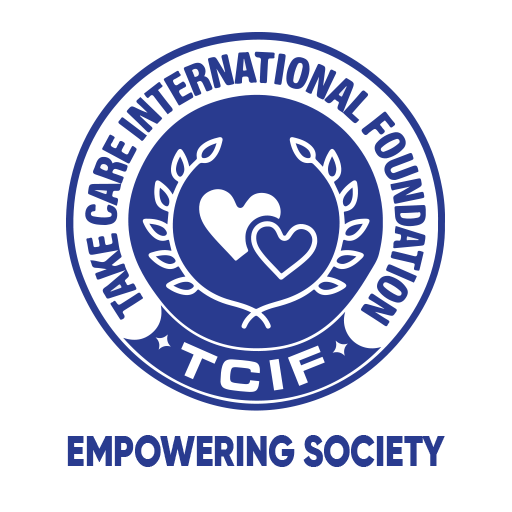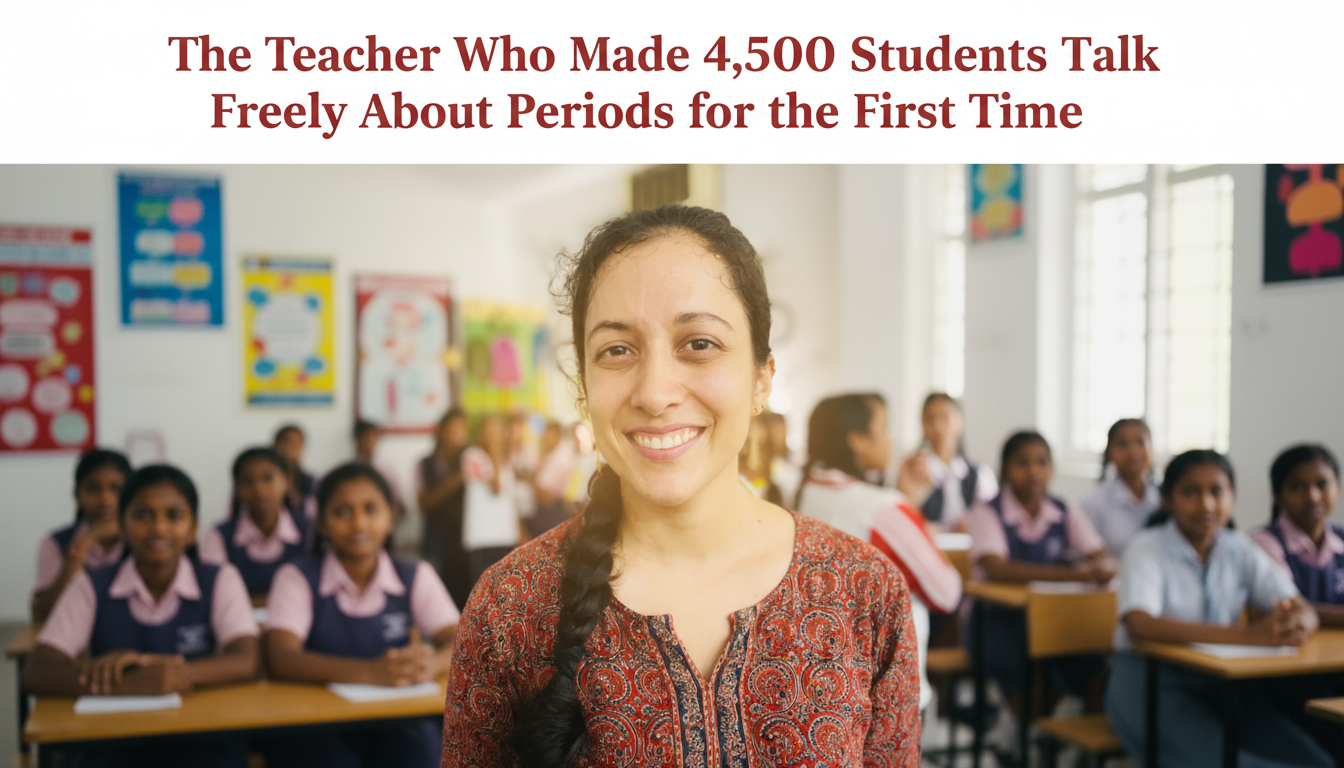
In the quiet town of Malihabad, Uttar Pradesh, where the air smells of mango orchards, a powerful transformation is unfolding inside a classroom. At the front of the class stands Zarine Garcia, a passionate educator with a simple yet revolutionary mission to help young minds speak openly about something long shrouded in silence: menstruation.
“Today, we will study about menstruation,” she begins.
There’s a pause. Nervous laughter. Eyes drop to notebooks. But Zarine smiles she knows this is the sound of change beginning.
Turning Classrooms Into Safe Spaces
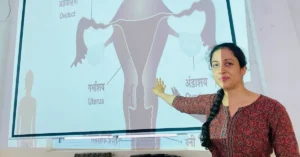
Zarine is the Director of Youth Leadership Development at the Study Hall Educational Foundation (SHEF) in Lucknow, an organisation dedicated to equality, empowerment, and education. Her sessions go far beyond textbooks they’re about dignity, respect, and body literacy.
“Many girls don’t even know the names of their anatomy,” Zarine shares. “They should. It’s the first step toward self-care and confidence.”
In her sessions, embarrassment slowly fades. By the third class, hands shoot up. Questions flow freely. And almost always, one question returns:
“Ma’am, when will you come again?”
From Pain to Purpose
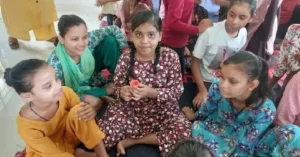
Zarine’s journey began with personal struggle.
Years ago, doctors dismissed her severe period pain as “normal.” She felt unseen, unheard, and silenced like countless women before her. Instead of giving up, she began studying menstrual and reproductive health herself, discovering how powerful awareness could be.
“It was liberating,” she says. “If I could understand my body, why shouldn’t every girl and boy have that same knowledge?”
Today, she channels that experience into her teaching reminding every student that menstruation isn’t shameful; it’s a sign of health, strength, and life itself.
When Homes Became Hubs of Change
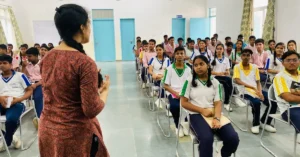
During the COVID-19 lockdown, when sanitary pads vanished from store shelves, Zarine didn’t wait for help. From her home, she filmed a simple video on how to make reusable cloth pads using old towels and fabric.
Her students picked up the idea instantly girls stitched their own pads, brothers joined in, and families across Malihabad turned kitchens into small workshops of dignity and creativity.
“During lockdown, we weren’t just talking about pads,” Zarine smiles. “We were talking about dignity.”
What began as a crisis response became a community movement, reshaping how families saw menstruation and sustainability.
Challenging Taboos, Building Confidence
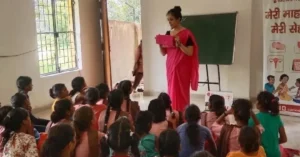
In rural Uttar Pradesh, where menstruation is often whispered about in shame, Zarine’s sessions have become lifelines.
Students like Khushi Kannaujia, a Class 11 student, now see periods as natural and healthy.
“Earlier, I felt ashamed,” she says. “Now I know better it’s not a disease.”
Even boys are breaking stereotypes. “We were told it’s impure,” says Abhay Diwakar, 17. “Now I know it’s a sign of health. I wish my father could learn too, so we could talk openly.”
Each story is proof that real change begins not with big slogans, but with quiet, honest conversations.
4,500 Students. 35 Communities. One Mission.
Since 2019, Zarine’s menstrual health education program through SHEF has reached over 4,500 students, teachers, and mothers across more than 35 schools in Uttar Pradesh.
Her impact now stretches beyond classrooms teachers talk openly in staffrooms, girls ask fathers and brothers for help without hesitation, and reusable pads are shared with pride.
“Menstrual education isn’t just about hygiene,” Zarine emphasizes. “It’s about health, respect, and mindset change.”
The Ripple of a Single Question
At the end of every session, as students pack up their bags, one or two linger.
“Ma’am,” they say softly, “please come back soon. We have more questions.”
For Zarine, that’s the real measure of success not numbers or milestones, but the courage of a young mind that dares to ask.
In the mango-scented classrooms of Malihabad, change isn’t loud or grand. It’s the quiet courage of students learning to speak and a teacher who believed that understanding our bodies is the first step toward empowerment.

